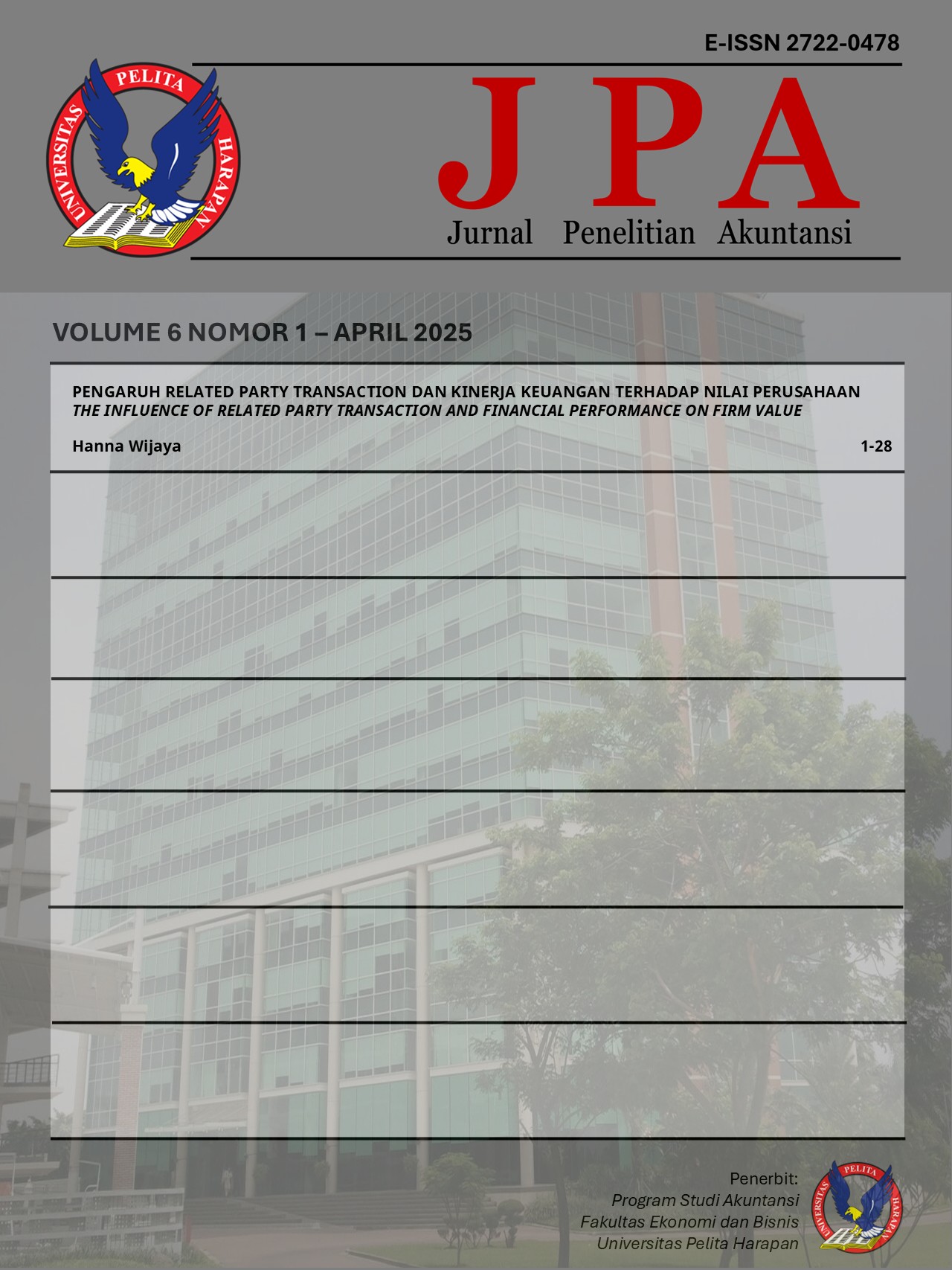PERAN LEMBAGA PELATIHAN DALAM MENINGKATKAN LITERASI DAN PROFESIONALISME PASAR MODAL: STUDI KUALITATIF PADA PRAKTISI EDUKASI KEUANGAN
Kata Kunci:
pelatihan pasar modal, literasi keuangan, pengembangan profesional, komunikasi linguistikAbstrak
Penelitian ini bertujuan untuk mengeksplorasi pengalaman dan strategi manajemen sebuah lembaga pelatihan pasar modal dalam meningkatkan literasi keuangan dan profesionalisme peserta, serta mengkaji peran aspek bahasa dan komunikasi dalam proses pembelajaran. Pendekatan deskriptif kualitatif dengan desain studi kasus tunggal digunakan, dengan fokus pada seorang informan kunci yang merupakan pemilik dan pelatih di sebuah lembaga pelatihan pasar modal di Jakarta. Data dikumpulkan melalui wawancara mendalam, observasi partisipatif, dan dokumentasi, kemudian dianalisis dengan menggunakan model analisis tematik Braun dan Clarke (2006). Temuan menunjukkan bahwa strategi pembelajaran yang diterapkan bersifat personal dan adaptif, dengan menggunakan metode yang beragam seperti kuliah interaktif, studi kasus, dan aplikasi simulasi pasar. Aspek bahasa dan komunikasi sangat penting untuk keberhasilan, di mana penggunaan bahasa yang tepat dan efektif dapat memfasilitasi pemahaman peserta dari berbagai latar belakang. Tantangan utama yang dihadapi termasuk promosi dan regenerasi peserta, yang diatasi melalui pendekatan individual dan pemanfaatan teknologi digital. Studi ini menawarkan kontribusi praktis dan akademis untuk pengembangan sumber daya manusia di pasar modal dengan menyediakan pelatihan yang efektif dan relevan serta menyoroti pentingnya komunikasi yang tepat dalam edukasi keuangan.
Referensi
Berns, R. G., & Erickson, P. M. (2001). Contextual teaching and learning: Preparing students for the new economy. National Dissemination Center for Career and Technical Education.
Bowen, G. A. (2009). Document analysis as a qualitative research method. Qualitative Research Journal, 9(2), 27–40.
Braun, V., & Clarke, V. (2006). Using thematic analysis in psychology. Qualitative Research in Psychology, 3(2), 77–101.
Creswell, J. W. (2018). Qualitative inquiry and research design: Choosing among five approaches (4th ed.). Sage Publications.
Creswell, J. W., & Poth, C. N. (2018). Qualitative inquiry and research design: Choosing among five approaches (4th ed.). Sage Publications.
Denzin, N. K., & Lincoln, Y. S. (Eds.). (2021). The SAGE handbook of qualitative research (5th ed.). Sage Publications.
Fairclough, N. (2013). Critical discourse analysis: The critical study of language (2nd ed.). Routledge.
Fatimah, S., & Rizky, A. (2022). Peran lembaga pelatihan dalam meningkatkan kompetensi profesional pasar modal di Indonesia. Jurnal Edukasi Keuangan, 3(1), 45–59.
Freire, P. (1970). Pedagogy of the oppressed. Herder and Herder.
Gee, J. P. (2018). Social linguistics and literacies: Ideologies in discourses (5th ed.). Routledge.
Knowles, M. S. (1980). The modern practice of adult education: From pedagogy to andragogy (Revised and updated edition). The Adult Education Company.
Lusardi, A., & Mitchell, O. S. (2017). How ordinary consumers make complex economic decisions: Financial literacy and retirement readiness. Quarterly Journal of Finance, 7(3), 1–31.
Mehrabian, A. (1971). Silent messages. Wadsworth.
Merriam, S. B., & Tisdell, E. J. (2016). Qualitative research: A guide to design and implementation (4th ed.). Jossey-Bass.
Miller, M. (2005). Improving the effectiveness of communication in adult education settings. Adult Learning, 16(3–4), 12–15.
Mishkin, F. S., & Eakins, S. G. (2020). Financial markets and institutions (9th ed.). Pearson.
Moleong, L. J. (2021). Metodologi penelitian kualitatif (Edisi Revisi). PT Remaja Rosdakarya.
OECD. (2016). OECD/INFE international survey of adult financial literacy competencies. OECD Publishing. https://www.oecd.org/finance/oecd-infe-survey-adult-financial-literacy-competencies.htm
OECD. (2020). OECD/INFE 2020 international survey of adult financial literacy. OECD Publishing.
OECD. (2020). The impact of COVID-19 on financial education: Insights from a survey of OECD/INFE members. OECD Publishing. https://www.oecd.org/financial/education/covid-19-financial-education.htm
Robbins, S. P., & Coulter, M. (2021). Management (15th ed.). Pearson Education.
Schleppegrell, M. J. (2021). The language of schooling: A functional linguistics perspective (2nd ed.). Routledge.
Spradley, J. P. (2016). Participant observation. Waveland Press.
Wiggins, G. (1990). The case for authentic assessment. Practical Assessment, Research & Evaluation, 2(2). https://doi.org/10.7275/ffb1-6f97
Yin, R. K. (2018). Case study research and applications: Design and methods (6th ed.). Sage Publications.
Unduhan
Diterbitkan
Terbitan
Bagian
Lisensi
Hak Cipta (c) 2025 Ronald Maraden Parlindungan Silalahi, Veny Anindya Puspitasari

Artikel ini berlisensiCreative Commons Attribution-ShareAlike 4.0 International License.
Authors who publish with this journal agree to the following terms:
1) Authors retain copyright and grant the journal right of first publication with the work simultaneously licensed under a Creative Commons Attribution License (CC-BY-SA 4.0) that allows others to share the work with an acknowledgement of the work's authorship and initial publication in this journal.
2) Authors are able to enter into separate, additional contractual arrangements for the non-exclusive distribution of the journal's published version of the work (e.g., post it to an institutional repository or publish it in a book), with an acknowledgement of its initial publication in this journal.
3) Authors are permitted and encouraged to post their work online (e.g., in institutional repositories or on their website). The final published PDF should be used and bibliographic details that credit the publication in this journal should be included.


